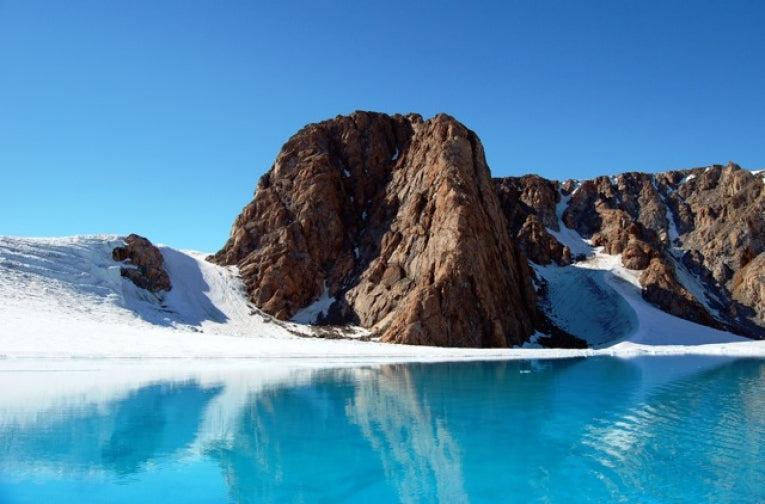Image Credit: Angus Duncan, University of Alberta. (Ice lake or supraglacial lake. Surface melt water can pond on the surface of the glacier forming large lakes that can drain within hours. Belcher Glacier, Devon Island, Nunavut, Canada.)
The vast Canadian archipelago of Arctic islands, the territory of Nunavut, covers an area the size of western Europe. New research shows that the melting ice caps and glaciers there play a much greater role in global sea level rise than previously believed - 1mm in only 6 years.
'This is a region that we thought was not contributing much to sea level rise,' said Alex Gardner, University of Michigan and lead author of the 6 year study published in Nature on 20 April. 'And while 1mm may not sound like much, small amounts can add up to big differences in the impact on our coasts worldwide. For the years 2007-2009 we find that this region was the largest land-ice contributor to sea level rise outside of the Greenland and Antarctica.'
Ninety nine percent of the planet's land ice is locked up in enormous ice caps in Antarctica and Greenland, and the remaining 1% is present in glaciers and smaller ice caps in the Canadian Arctic, Alaska, and Patagonia.The mere third of the 1% of planetary land ice in the Arctic archipelago is disproportionately contributing to sea level rise as it melts much faster than the colder, bigger ice caps. Gardner cautions that because the study took place over just 6 years, the results do not necessarily constitute a trend. 'This is a big response to a small change in climate, but right now we don't know if it will continue,' he said.
Much of the team's analysis was conducted using data from two different satellites - ICEStat, and GRACE which measure changes in ice mass using lasers and change in the earth's gravimetric field respectively. But the scientists had to work on the ice caps and glaciers themselves to 'groundtruth' the data in extreme conditions for 6 weeks at a time, over three years. The high altitude camping on Devon Island allowed them to correct their data sets to take into account anomalies like the radar-based GRACE penetrating the soft snow and bouncing off harder ice below, or ICESat's laser-based system bouncing off clouds
The United Nations are predicting a full one metre rise in ocean levels due to climate change by the end of this century, with disastrous implications for future floods, inundation of fertile land, and storm surges. The livelihood of tens of millions of coastal residents are at risk.










